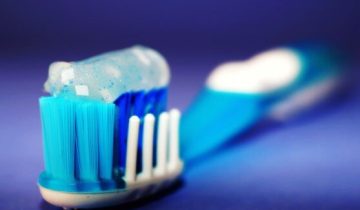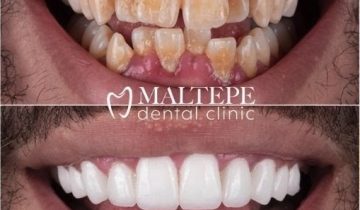Last updated on August 16th, 2023
During the winter months, you may be enjoying the cool weather and the beautiful scenery winter presets. But some people do not like winter because of their tooth sensitivity and toothaches that are generally the result of cold temperatures. Tooth sensitivity and aches may occur due to many reasons, but being exposed to the cold weather during winter is one of the major reasons.
When you experience teeth sensitivity or pain during winter, it’s best to visit your dentist. Your dentist may discover that the problem is caused by a cavity or an exposed root. Another reason for the problem may be worn tooth enamel. If you are lucky, your dentist may decide that you only need to change your toothpaste and start using one that will reduce your problems. However, you should be ready for cases like an infection or tooth decay.
Although in some cases the tooth sensitivity is not a sign of big problems, you should always consider the cases where your teeth may have serious problems, so you should never neglect to consult your dentist.
Here are some suggestions for ways to strengthen your teeth so you may pass the winter with sensitive and ache free teeth:
1) Breathe Through Your Nose
Breathing in the cold air results in sensitive teeth. Therefore, when you’re outside during winter, you need to be careful about breathing through your nose and breathing out through your mouth to prevent sensitive teeth.
2) Drink Hot Beverage with a Straw
When you drink something hot, you need to be cautious about not contacting the hot beverage with your teeth as much as possible. You may want to let the drink cool down a little or drink it through a straw to reduce the teeth contact.
3) Make Sure to Take Vitamin D at the Necessary Daily Dose
One of the conditions you need to be cautious about during the wintertime is the decreased daily dose of vitamin D as a result of decreased outdoor time. As you know taking the necessary daily dose of Vitamin D regularly is crucial for our teeth and bone health, and the sunlight helps our body to produce vitamin D. Therefore, during the cold winter times when you don’t get sunlight exposure, you may need to add meals that are rich of vitamin D to your diets like fortified cereals and fatty fish.
4) Take Action to Prevent Dry Mouth
When you get cold and your nose is stuffed, you tend to breathe through your mouth. Excessive mouth breathing results in dry mouth, which increases the risk of dental decays and mouth infections.
To prevent these problems, we recommend you drink plenty of water regularly and also chew sugar-free gum so that your mouth can stay moist. Also, since caffeine acts as a diuretic and causes your body to lose water limiting caffeine intake may help you reduce the dry mouth problem.
5) Do Not Over-Brush Your Teeth
This easy to implement suggestion helps reduce your sensitive teeth problem. Over-brushing your tooth will result in losing tooth enamel which protects your teeth’s surface. Therefore, this unnecessary habit of over brushing can easily cause many serious teeth problems. To prevent this problem, use a non-abrasive toothpaste and soft brush.
6) Try a Different Toothpaste
At your local store, you can find many different toothpaste alternatives specifically designed for reducing teeth sensitivity. Look for the one that your dentist recommends. You may want to look for desensitizing toothpaste, which will minimize your toothache resulting from the sensitive teeth problem.
7) Use a Fluoride Treatment
Take advantage of fluoride treatments like gels and rinses. These treatments will strengthen your tooth enamel and protect your teeth from possible problems. When your teeth are covered with the gel, the nerves inside of your teeth will be protected.
8) Reduce Sugar and Acid Intake
Many people love to consume acidic and sugary foods and drinks. However, the excessive amount of acid and sugar results in tooth pain and tooth decay. Therefore, we strongly suggest that you reduce the consumption of soda, wine, candies and similar foods and drinks for the sake of your healthy teeth. Also, keep in mind that because it softens your enamel, you should NOT brush your teeth right after you eat or drink anything acidic. Try to use a straw to prevent drinks with acid from harming your teeth.
As you can see, the cold weather during winter doesn’t have to result in teeth sensitivity or tooth pain. Consulting to your dentist is the first action you need to take, but besides visiting your dentist, there are helpful habits you need to consider for healthier and happier times during the cold winter months.
Note: Medically Reviewed by Dr. Yusuf Ilhan, on February 16, 2015








